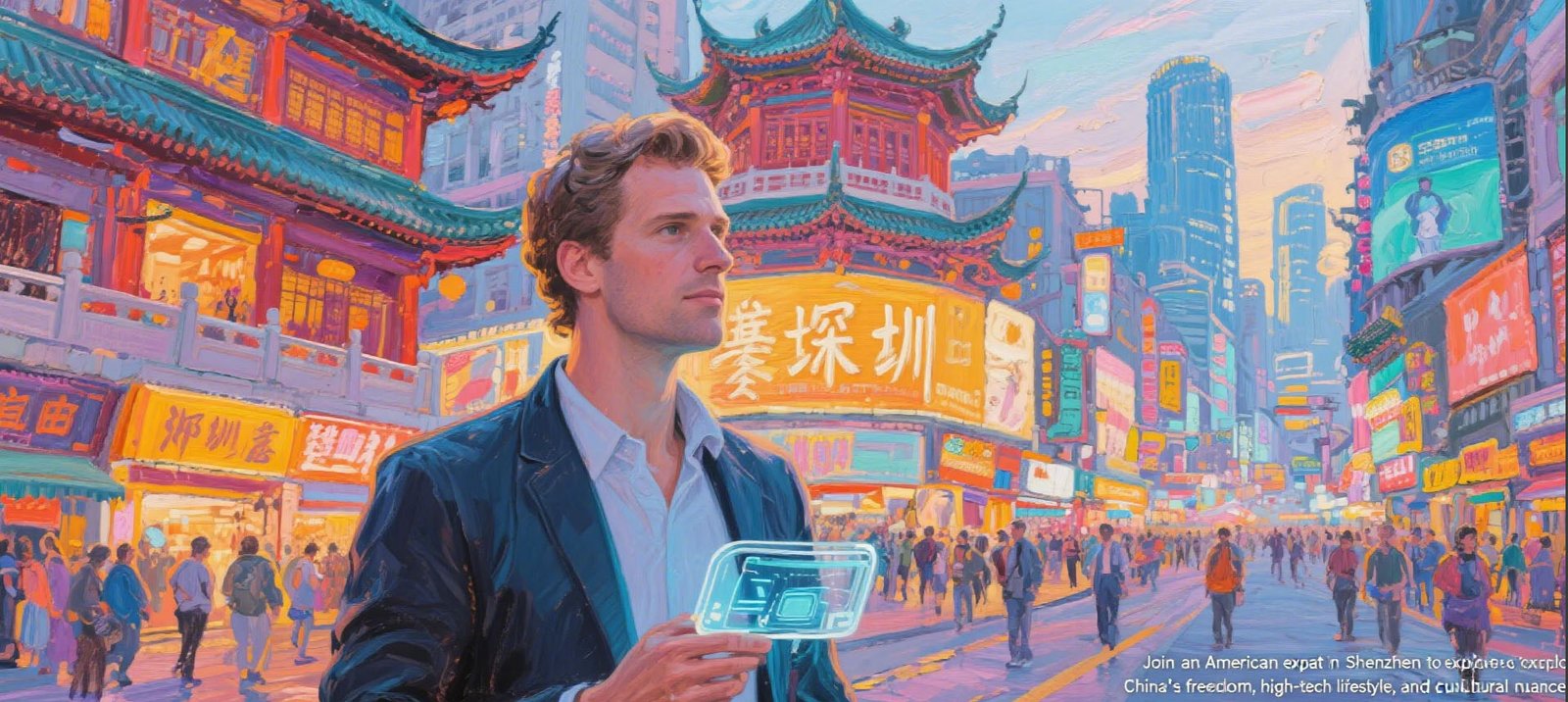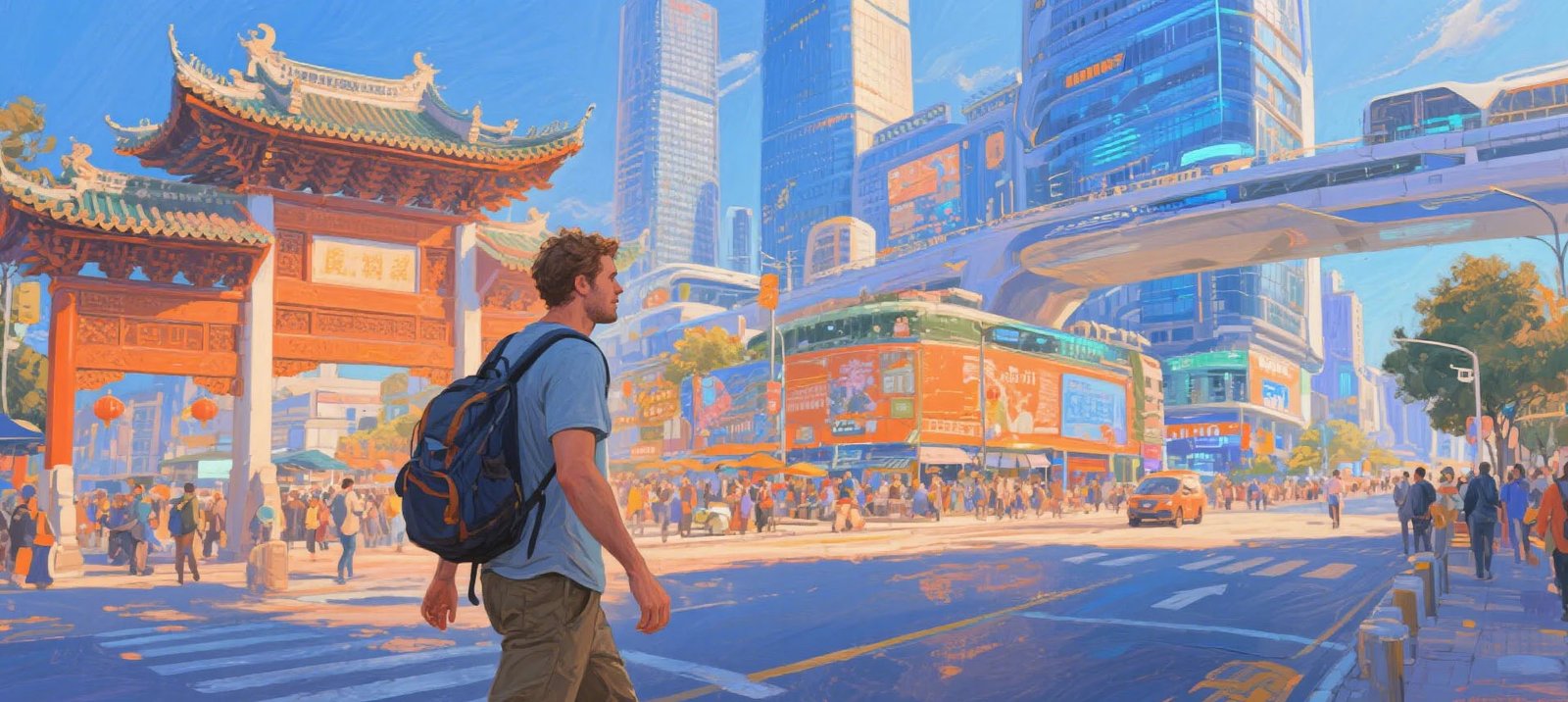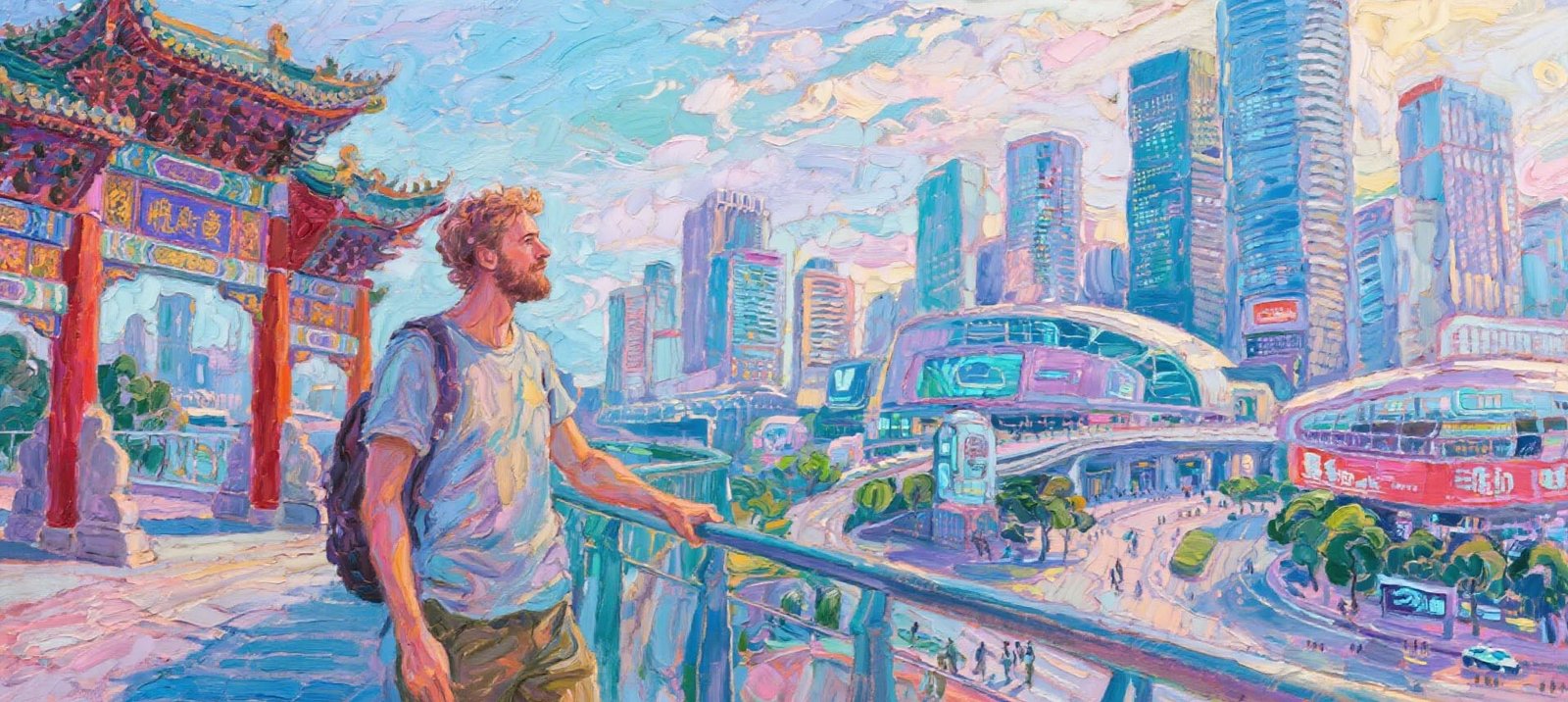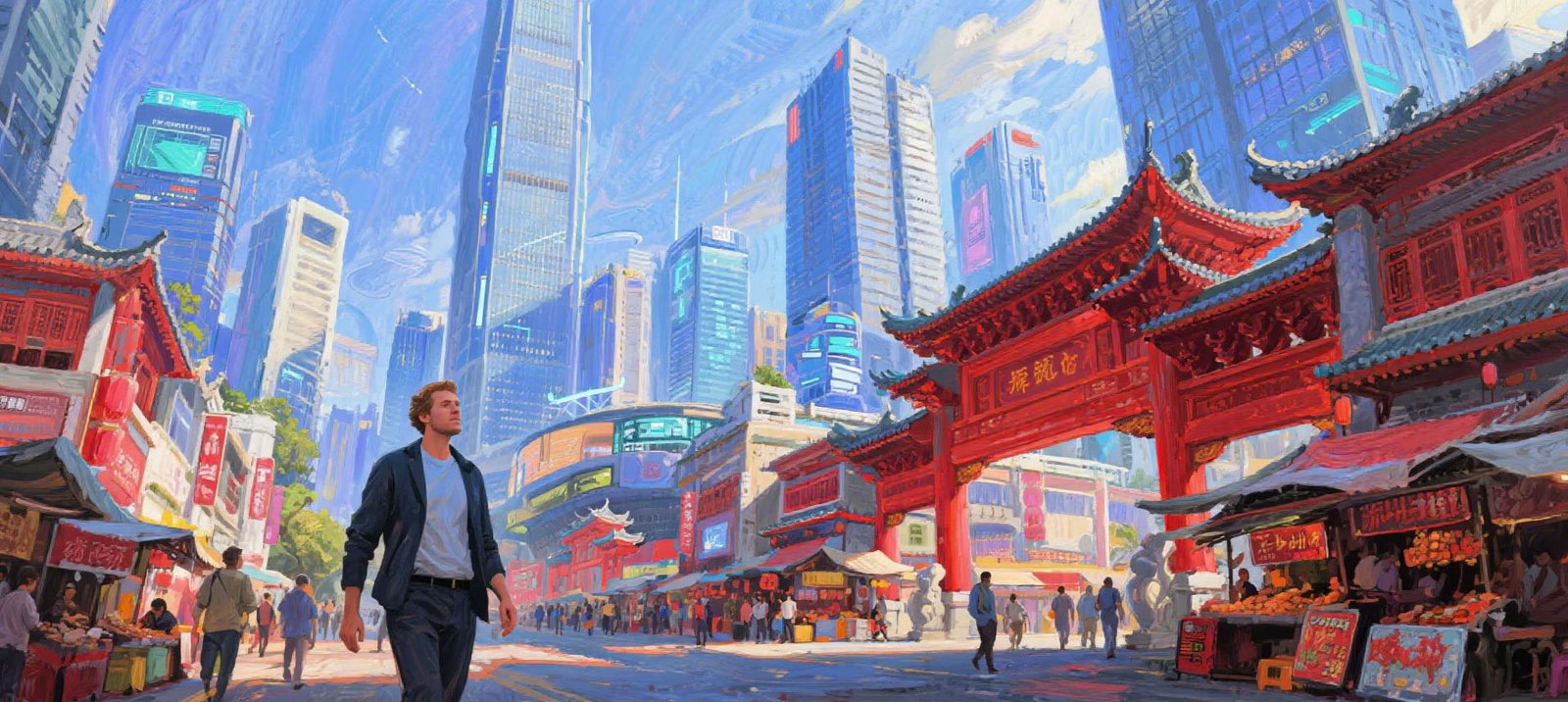Western media often labels China as a controlled, unfree society. Sean, an American expat living in China for 15 years, challenges this view. A market
Western media often labels China as a controlled, unfree society. Sean, an American expat living in China for 15 years, challenges this view. A marketing professional married to a Chinese wife, he guides us through Shenzhen’s high-tech landscape, sharing insights on freedom, expat challenges, and cultural nuances. This article, created for allwinchina.org, reveals the vibrant reality of modern China.
Freedom: Redefining the Concept
Western perceptions paint China as a police state with no freedom. Sean calls this “silly.” Freedom, he argues, depends on definition. “If it’s about saying anything without repercussions, even the U.S. lacks that,” he notes, citing speech restrictions. In China, freedom means earning money, living safely, and supporting families—often surpassing Western standards. At Shenzhen’s Lianhua Park, families fly kites and relax, embodying prosperity-driven freedom.
Social Compact: Stability for Prosperity
China isn’t a democracy, Sean acknowledges, but a social compact exists. Citizens accept governance for economic growth. “People are fine with it as long as the economy improves,” he says. Despite tech sector crackdowns, China’s progress allows families to thrive, with relaxed policies now permitting two or three children. This stability fuels happiness, visible in Shenzhen’s bustling streets.

Explore China
Shenzhen: A High-Tech Hub
Shenzhen’s city center showcases China’s advancement. Skyscrapers, Huawei and Xiaomi stores, and electric vehicles (EVs) dominate. “It’s a high-tech lifestyle,” Sean observes. Roads are quiet despite heavy traffic, thanks to EVs. Subways, buses, and bike shares make transport accessible, outpacing Sean’s California hometown, where public transit lags. China’s infrastructure keeps expanding, connecting outer districts efficiently.
Transportation: Efficient but Hectic
China’s transportation impresses Sean. Subways and buses are reliable, unlike California’s limited options. However, scooters pose challenges. “Food delivery scooters are everywhere,” he says, buzzing on sidewalks and roads. This creates hectic traffic, though safer than 20 years ago. Expats must stay vigilant, but it’s a minor issue in an otherwise efficient system.
Chinese Habits: Subtle Influences
Living in China, Sean adopted local habits. He uses Chinese filler words like “nàge” when thinking, avoiding Western equivalents to prevent misunderstandings. Tapping two fingers on the table when tea is poured is a courtesy he does automatically. These small habits reflect China’s cultural influence, ingrained through daily life and interactions.
Returning to the U.S.: A Culture Shock
Visiting the U.S., Sean finds paper money odd. “China’s cashless,” he says, using WeChat or palm-print payments. Red envelopes with cash appear only at family events, like his wife’s relative’s wedding. He notices U.S. insularity, with less awareness of global progress. China feels international, with diverse interactions, while the U.S. seems disconnected from world developments.

Explore Chinese Culture
Expat Challenges: Cultural Sensitivity
Sean advises expats to avoid arrogance. “Don’t be a jerk,” he warns. Chinese locals welcome foreigners, unlike some anti-Asian sentiments in the U.S. However, some expats exploit this kindness, assuming locals won’t push back. High expat salaries, like tens of thousands of RMB for international schools, frustrate Chinese employees doing the heavy lifting. Reciprocity, or liáng wǎng, is key—treat others as they treat you.
Working with Chinese Teams: Indirect Communication
Direct criticism doesn’t work in China’s high-context culture. Sean recalls a Western designer yelling at a Chinese team, expecting compliance, but failing due to cultural ignorance. “You can’t just demand your way,” he says. To address issues, distinguish between critical and minor problems. For critical issues, like market compliance, communicate tactfully to stakeholders, respecting face and egos. Sales often trump public opinion for Chinese firms, so align suggestions with their priorities.
Business in China: Local Expertise Needed
Managing a Chinese operation from abroad is tough. “You need someone on the ground,” Sean stresses, ideally a Chinese manager or Western consultant fluent in local culture and language. Chinese teams may not report proactively or follow Western guidelines without oversight. Sean’s firm offers such services, bridging cultural gaps to ensure businesses move at “China speed”—fast and adaptive.
Drinking Culture: Building Bonds
Drinking isn’t mandatory for business, but it helps. In northern China, Sean joined friends knocking back baijiu shots, though southerners prefer wine or beer. “It’s about the atmosphere, not alcohol,” he says. Toasting and presence matter more than drinking. Eating beforehand helps with heavy baijiu sessions, especially in the north, where locals outdrink most expats.

China’s future
China’s Future: A Global Force
Sean sees China as a global leader, even with economic decoupling talks. “China’s the future,” he says, citing its influence in the Global South and beyond. Its rapid changes mean a year’s absence can make it unrecognizable. Expats must stay engaged to keep up. Sean plans to return to the U.S. for his kids but will maintain China ties through business trips.
Conclusion: A Thriving, Misunderstood China
Sean’s 15 years in Shenzhen reveal a prosperous, tech-driven nation. Freedom exists in safety and opportunity, not just speech. Cultural sensitivity and local expertise are vital for expats. China’s vibrant streets and efficient systems challenge Western stereotypes. allwinchina.org invites you to visit and discover modern China’s reality.



COMMENTS